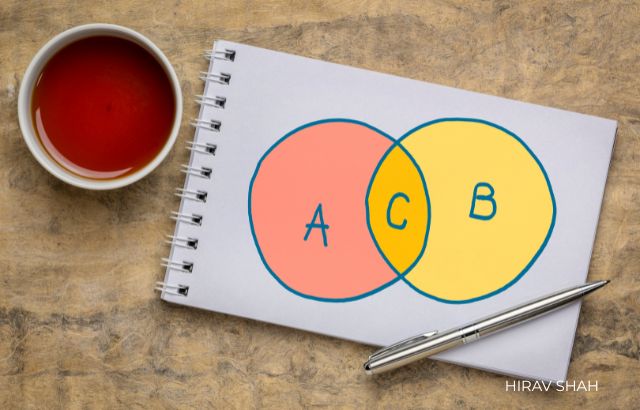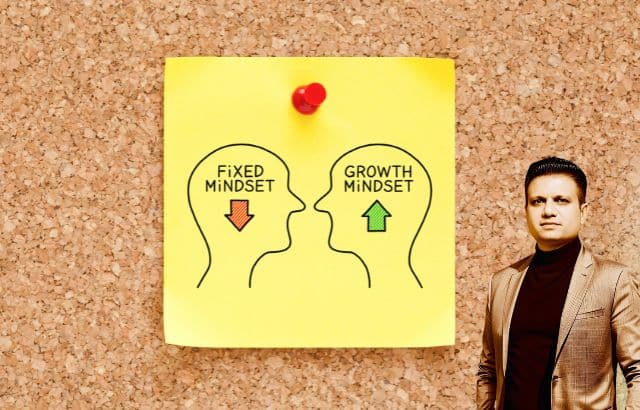In today’s complex world of entrepreneurship, one question keeps coming back: Do you need a business strategist or a business consultant? At first glance, these roles may look similar—both guide, both advise, and both promise solutions. Yet, when you dive deeper, the distinction becomes life-changing for any entrepreneur, investor, or CEO.
This article is about giving you clarity. By the time you finish reading, you’ll know exactly:
- Who a business strategist is and who a business consultant is.
- When it’s the right time to hire each one.
- How their roles overlap, where they differ, and how they can collaborate.
- The real difference that could decide the future of your business.
Think of this as your decision-making guide. It’s not about choosing one over the other blindly—it’s about understanding the value each brings and how that choice can save or multiply your resources.
For deeper insights on business strategy, check out Business Strategist Hirav Shah’s exclusive interview in The New Indian Express
Table of Contents
1. Who is a Business Strategist?
Business strategist Hirav Shah always explains it this way: “A business strategist doesn’t just tell you what to do; they validate if what you’re thinking is even worth doing.”
A business strategist is like the architect of your business journey. Imagine you’re about to build a skyscraper. Would you start with bricks, cement, and workers? Or would you first create a detailed blueprint that validates the foundation, the height, and the long-term sustainability? That blueprint is exactly what a business strategist provides.
The Role in Depth
A business strategist is not chasing short-term fixes. Their core responsibility is to:
- Define the vision: Where do you want to go?
- Validate the decision: Is this move worth the risk?
- Align the timing: When is the right moment to act?
- Map the direction: How do you move from Point A to Point B without wasting years and crores?
Unlike a consultant who often enters after a problem has occurred, a business strategist steps in before. They ensure you don’t walk into traps that others discover too late.
A Story Example
Take the case of an Indian tech startup (fictionalized for privacy). The founders were excited about expanding into the Middle East. They had consultants ready to fix HR structures, legal paperwork, and operational issues. But before committing, they approached a business strategist. The strategist validated whether the timing, demand, and positioning were aligned. The result? They discovered the market wasn’t yet ripe, and expansion would have sunk crores in losses. Instead, they pivoted to scale within India first—and when the right time came, they expanded globally with far greater success.
This is the invisible shield a business strategist provides. They don’t just plan—they protect, align, and validate.
Traits of a True Business Strategist
- Foresight: Can see five to ten years ahead, not just six months.
- Clarity: Translates complexity into simple, actionable direction.
- Validation Ability: Ensures big moves are backed by data, timing, and strategy.
- Integration: Connects mindset, skills, execution, and even luck (the 6+3+2 formula) to maximize results.
As Hirav Shah often says: “Businesses don’t fail—strategies do. With the right strategy, you can rewrite your entire success story.”
2. Who is a Business Consultant?
Business strategist Hirav Shah often explains: “If a strategist is the architect, then a business consultant is the engineer who makes sure every part of the structure functions smoothly.”
A business consultant is a specialist who steps in when you face specific challenges in your business. They are problem-solvers who zoom into one area—be it HR, finance, operations, marketing, branding, IT, or compliance—and bring in expertise to fix, optimize, or implement solutions.
The Role in Depth
- A business consultant works on defined problems: slow sales, rising costs, team inefficiency, legal bottlenecks, or digital gaps.
- They bring technical know-how and industry experience to solve these issues.
- Their contribution is often short-to-medium term, focused on efficiency and execution rather than vision.
A Story Example
Consider a retail brand that was losing money despite strong customer demand. The founders didn’t know where the leak was. A business consultant specializing in supply-chain management stepped in. Within three months, they redesigned vendor contracts, optimized logistics, and cut wastage by 20%. The brand bounced back into profitability—not because of a new vision, but because the consultant solved a specific operational problem.
That’s the power of a business consultant: they are the “fixers” who help you navigate immediate bottlenecks.
Traits of a True Business Consultant
- Domain Expertise: Deep knowledge in a specific functional area.
- Hands-On Problem Solving: Doesn’t just advise but often implements.
- Efficiency-Oriented: Focuses on cost-cutting, process improvement, and quick ROI.
- Tactical Execution: Provides practical, technical, and actionable solutions.
As Hirav Shah points out: “A consultant answers the question—how do we solve this problem today?”
3. Common Misconceptions
One of the biggest reasons entrepreneurs get confused is the blurred perception between business strategist and business consultant. As Hirav Shah says: “People often think a consultant can replace a strategist, or a strategist can do a consultant’s job. That’s like asking your architect to repair a leaking pipe or your plumber to design a skyscraper.”
Myth 1: A Business Consultant Can Define Long-Term Vision
Many assume that because consultants are experts, they can also set the overall direction of the business. In reality, consultants focus on functional areas, not the entire game plan.
Myth 2: A Business Strategist Solves Immediate Problems
Entrepreneurs sometimes expect strategists to fix sales decline or HR inefficiency. But that’s a consultant’s role. A strategist ensures you’re on the right path, not fixing daily roadblocks.
Myth 3: You Only Need One of Them
Another common misconception is that businesses must pick either a strategist or a consultant. In truth, both are often required at different stages—the strategist defines the direction, while the consultant ensures smooth execution.
A Story Example
An SME in the textile industry hired multiple consultants to streamline processes but still failed to scale. Why? Because there was no strategist to validate whether scaling was the right move at that time. The result: the company solved internal inefficiencies but expanded into markets where demand was weak, leading to losses. This is what happens when misconceptions dictate decisions.
4. When Is It Time to Hire a Business Strategist or a Business Consultant?
Business strategist Hirav Shah often says: “The right decision at the wrong time is still the wrong decision.” Knowing when to hire a business strategist or a business consultant is just as important as knowing who they are.
When to Hire a Business Strategist
- Before making big moves: starting a new business, buying a company, entering new markets, launching a product, or planning an exit.
- At crossroads: M&A, partnership decisions, scaling or downsizing.
- When you feel uncertain about direction: not sure if your next move is worth the investment.
Example: A real estate developer was excited to invest in luxury villas. A business strategist validated market demand, timing, and ROI potential. The analysis revealed luxury demand was slowing, while mid-segment housing was rising. That one validation saved hundreds of crores.
When to Hire a Business Consultant
- When you face a specific challenge: HR, finance, branding, IT, compliance, or marketing.
- When execution is weak: sales funnel not converting, employee turnover rising, cash flow stuck.
- When efficiency is critical: cost-cutting, restructuring, implementing systems.
Example: A fashion brand knew their path forward but had delivery delays. A logistics consultant stepped in and cut turnaround time by 40%.
Quick Checklist
- If your question is “Should I?” → Hire a business strategist.
- If your question is “How do I?” → Hire a business consultant.
5. Impact on ROI
Hiring the wrong professional isn’t just a bad choice—it can be an expensive mistake. Hirav Shah often reminds entrepreneurs: “You don’t just lose money; you lose time, reputation, and momentum.”
How a Business Strategist Impacts ROI
- Prevents wrong decisions before they drain resources.
- Aligns timing so you invest when the market is ready.
- Validates direction so every rupee spent compounds into long-term gains.
Example: An investor was ready to acquire a tech startup. A business strategist validated the startup’s financials, team capability, and timing. The strategist advised against it—the startup collapsed six months later. ROI was protected.
How a Business Consultant Impacts ROI
- Fixes inefficiencies that eat into profits.
- Optimizes processes for better cost savings and productivity.
- Implements systems that accelerate short-term returns.
Example: A hotel chain hired a hospitality consultant to improve service processes. Guest satisfaction scores jumped, repeat bookings increased, and revenue climbed—all from operational fixes.
Takeaway
- Business strategist: Protects ROI by preventing mistakes.
- Business consultant: Increases ROI by fixing leaks.
6. Overlapping of Both the Areas
Sometimes the line between a business strategist and a business consultant blurs. As Hirav Shah says: “They may touch the same problem—but from two different angles.”
Example of Overlap
- A company decides to expand digitally.
- The business strategist validates if digital expansion is the right move at this stage and defines the path.
- The business consultant implements the right tools—CRM systems, marketing automation, and digital campaigns.
Both are involved in the same initiative, but their roles are distinct: one ensures the direction is correct, the other ensures the execution is effective.
Why Overlap Can Be Confusing
- Entrepreneurs may think: “If a consultant can implement, why do I need a strategist?”
- Or: “If I have a strategist guiding me, why involve consultants?”
- The truth: Overlap doesn’t mean duplication—it means complementing each other’s strengths.
7. How to Choose the Right Professional for Your Need
Business strategist Hirav Shah often says: “The first wrong hire in business is usually not an employee—it’s choosing the wrong advisor.”
Choosing between a business strategist and a business consultant comes down to asking the right questions.
If You Need a Business Strategist
Ask yourself:
- Am I at a crossroad in my business?
- Do I feel uncertain about the next move?
- Am I about to invest, expand, or transform and need clarity on whether it’s worth it?
- Do I need validation of timing, direction, and potential ROI?
If the answer is yes, you need a business strategist—someone who sees the whole chessboard.
If You Need a Business Consultant
Ask yourself:
- Is there a specific challenge draining time or money?
- Do I know the direction but need help with execution?
- Is there a functional bottleneck (HR, marketing, IT, finance, compliance) that requires domain expertise?
- Do I need specialist input for short-term problem solving?
If the answer is yes, you need a business consultant—someone who dives into the technical trenches.
Quick Flowchart
- If your challenge is about clarity and validation → Hire a business strategist.
- If your challenge is about fixing and executing → Hire a business consultant.
8. How a Business Strategist and a Business Consultant Can Collaborate
Hirav Shah often explains: “One shows you the road, the other helps you drive on it safely.”
In reality, many successful businesses thrive when both professionals work together.
Example of Collaboration
- A global fashion brand planned to enter India.
- The business strategist validated if India was the right market, defined the entry strategy, and identified the best timing.
- The business consultants then stepped in—handling compliance, setting up HR systems, designing marketing campaigns, and building supply chains.
The result: a smooth, profitable launch. Without the strategist, the move might have been mistimed. Without the consultants, execution would have failed.
The Synergy
- Business Strategist: Defines the why, when, and where.
- Business Consultant: Defines the how.
- Together, they create a complete cycle of clarity + execution.
As Hirav Shah emphasizes: “A strategist without consultants is incomplete, and consultants without a strategist are directionless.”
9. The Real Difference
At the heart of it all lies the real difference between a business strategist and a business consultant.
- A business strategist is the architect of the future—they validate, protect, and guide long-term moves.
- A business consultant is the engineer of the present—they fix, optimize, and execute in the short-to-medium term.
One prevents wrong moves; the other solves existing problems. One safeguards your investments; the other maximizes your returns.
Simple Analogy
- Building a skyscraper?
- The business strategist designs the blueprint.
- The business consultant ensures the plumbing, wiring, and materials are top-notch.
- Without the strategist, you may build in the wrong place.
- Without the consultant, the building may collapse from poor execution.
As Hirav Shah concludes: “Businesses don’t fail because of lack of hard work—they fail because they either had no strategy or the wrong execution. A business strategist and a business consultant, together, ensure neither happens.”
10. Real-World Examples (Indian & Global)
Business strategist Hirav Shah often explains through stories: “Success leaves clues—and so does failure.” The difference between a business strategist and a business consultant is best understood through real-world outcomes.
Case 1: The Textile SME in India
An SME in Gujarat wanted to expand into Europe. They hired consultants for compliance, shipping, and marketing. The consultants did their job, but no one validated if Europe was the right market at that time. The result? The company expanded but faced low demand, lost capital, and eventually downsized. They had consultants, but no strategist.
Case 2: The Global Tech Giant
A Silicon Valley firm planned to diversify into Asia. A business strategist first validated the timing, demand, and local partnerships. Once the green light was given, business consultants in HR, finance, and marketing executed the move. The entry was flawless. The firm became a top player in less than five years.
👉 Lesson: Consultants fix and execute, strategists validate and protect. Without one, the other is incomplete.
11. The Future of Business Strategy vs. Consulting
The business world is evolving rapidly. According to Hirav Shah: “Tomorrow’s winners will be those who combine foresight with flawless execution.”
- Business Strategists will grow even more important as markets get unpredictable, competition intensifies, and AI disrupts industries. Their role will be to validate not just decisions, but the very timing of opportunities.
- Business Consultants will become increasingly specialized. Instead of generic consulting, we’ll see niche experts in AI adoption, sustainability, cybersecurity, digital transformation, and more.
The future isn’t strategist vs. consultant—it’s strategist and consultant, working in harmony.
12. FAQs
Q1. Can one professional act as both a business strategist and a business consultant?
In rare cases, yes. Some professionals carry experience in both areas, but it’s uncommon. Usually, a strategist defines direction, while consultants specialize in specific functions.
Q2. Do startups need a business strategist or a business consultant first?
Startups need a business strategist first—to validate their idea, timing, and path. Once direction is clear, consultants can fix operational gaps.
Q3. Who is more expensive to hire—a business strategist or a business consultant?
A business strategist may cost more upfront, but they save far bigger losses by preventing wrong moves. Business consultants usually cost less, but their ROI is immediate in terms of fixes and efficiency.
Q4. How do I evaluate whether my business needs strategy or consulting right now?
- If you’re at a crossroad or unsure about direction → You need a business strategist.
- If you know your direction but face executional or functional challenges → You need a business consultant.
Here’s a revised version of your excerpt, incorporating anchor text linking to the article you provided:
13. Conclusion
At first glance, a business strategist and a business consultant may appear to overlap. But the real difference is crystal clear:
A business strategist protects you from costly wrong decisions by validating the big picture.
A business consultant solves specific problems and ensures efficient execution.
Entrepreneurs who confuse the two often waste time and money. Those who understand the difference—and hire accordingly—gain clarity, save resources, and accelerate growth.
As Hirav Shah concludes:
“Before your next big move, ask yourself—do I need clarity for the future, or solutions for today? That answer will decide if you need a business strategist or a business consultant.





















